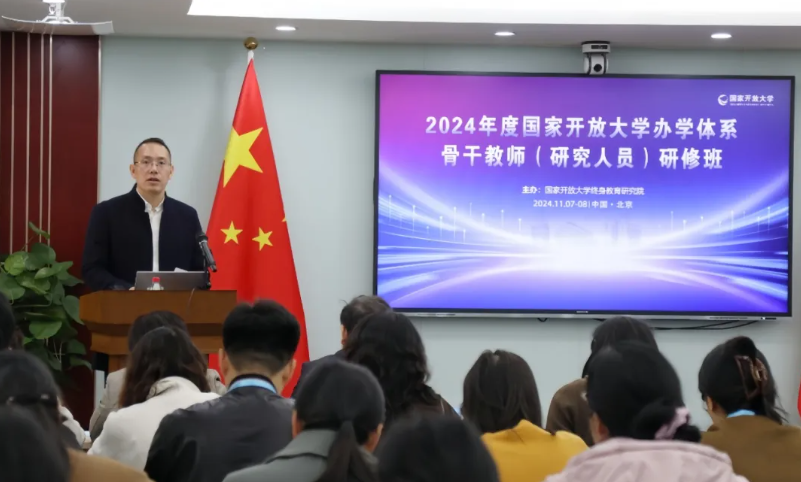 It is clearly stated at the reports delivered at the 20th National Congress of the Communist Party of China (CPC), the Third Plenary Session of the 20th CPC Central Committee, and the National Conference on Education that “We will promote the digitalisation of education and build a society and country of learning where lifelong learning is pursued by all” and “to improve public services for lifelong learning”.
It is clearly stated at the reports delivered at the 20th National Congress of the Communist Party of China (CPC), the Third Plenary Session of the 20th CPC Central Committee, and the National Conference on Education that “We will promote the digitalisation of education and build a society and country of learning where lifelong learning is pursued by all” and “to improve public services for lifelong learning”.
As a vital force in constructing an education system that supports lifelong learning for all, the Open University of China (OUC) should take the lead in advancing digitalisation in education and serve as a model and benchmark. On 7 November 2024, the OUC Core Faculty (Researchers) Training Programme, organised by the OUC Lifelong Education Research Institute, officially commenced. This programme aims to improve the digital literacy of the OUC system’s faculty and researchers, enhance their ability to use data intelligence software, elevate teaching and research levels, promote organised research, and better serve the construction of a learning society and country.

Li Song delivered the opening speech.
At the opening ceremony, Li Song, a member the Party Committee and vice president of the OUC, delivered a speech to mark the programme’s commencement. He emphasised that, in the new era, the university's transformation and development should be fundamentally guided by the directives and guiding principles of the 20th National Congress of the CPC, the Third Plenary Session of the 20th CPC Central Committee, and the National Conference on Education, with digitalisation as a key driver for high-quality growth. This training programme is meticulously designed around the theme of “Intelligent Analysis and Application of Educational Big Data”, aiming to enhance the research capabilities and data literacy of the faculty. Equipping teachers to integrate digital technologies and diverse research methodologies, the programme aims to conduct high-quality research projects and improve teaching efficiency and effectiveness. Li Song set forth three expectations for teaching faculty and researchers in open education. The first is to identify genuine issues; the second is to overcome difficulties; and the third is to immerse themselves in in-depth, systematic, and long-term research that meets national needs and the unique requirements of open education, making true contributions to the cause of lifelong education and national development.
This training programme is conducted online and offline in a blended way. The curriculum is extensive, covering topics such as open education's role in serving the construction of a learning society, data literacy for university faculty in the age of intelligent technology, statistical analysis of data and SPSS operations, knowledge graph data analysis, text mining and data visualisation techniques, and practical applications of educational big data analysis. The in-person sessions on 7–8 November focused on interactive learning through specialised lectures, case studies, group discussions, and scenario-based tasks, fostering active engagement among participants, experts, and colleagues to help bridge theoretical knowledge and practical skills. The online courses emphasised theoretical instruction, offering participants a wealth of learning resources and a flexible, open learning environment. Professors invited to deliver lectures were Zhu Zhiting from East China Normal University, Yan Wenfan from the University of Massachusetts Boston, and Wei Shunping from Minzu University of China.
This training programme not only provides a valuable learning and exchange platform for teaching and research staff within the OUC education system, enabling them to gain foundational knowledge and core skills in data intelligence, but also strengthens mutual exchanges and learning, and joint construction and sharing among them. It plays a positive role in consolidating collective efforts across the system, promoting organised research, and advancing the quality improvement and excellence creation in open education. The Lifelong Education Research Institute will continue to conduct academic activities focused on digital empowerment in lifelong education, delivering organised and high-quality research outcomes to support the OUC’s role in better serve the construction of a society and country of learning.
Around 100 teaching and research staff members from the OUC headquarters and branches participated in this training programme.
Written by Zhang Manyin, and photo by Zheng Jinbo, OUC